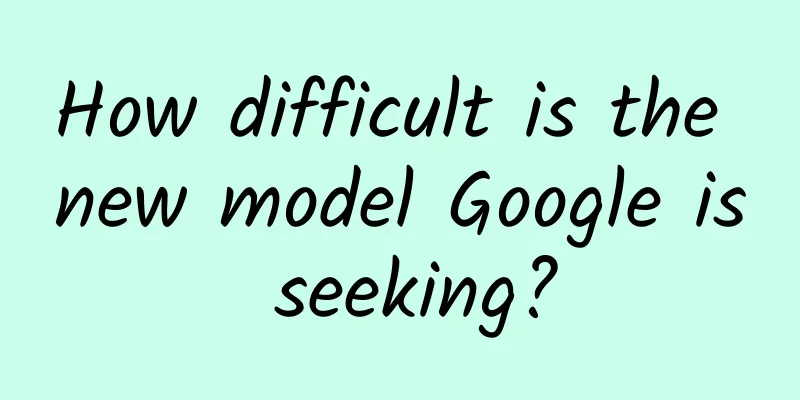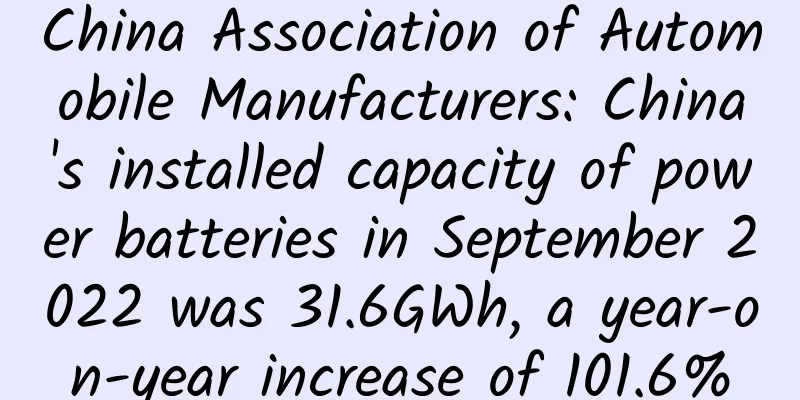How difficult is the new model Google is seeking?

|
In the early morning of October 5th, Beijing time, Google released its new generation of smartphones, Google Pixel and Pixel XL. After the launch conference that day, John Gruber (translator's note: writer, author of the technology blog Daring Fireball) said:
Gruber doesn't seem impressed at all by Google's new Pixel phone. Gruber is both right and wrong. Google is no match for Apple in making money from smartphones Yes, as Gruber recalls, Gandora was fiercely anti-Apple and made grand promises about the future. Remember that day after his speech, those who believed him ended up getting an HTC EVO 4G (Translator's Note: This is a controversial smartphone). At the same time, Apple's competitors, such as Samsung, Motorola, and HTC, all started using Google's Android, and it became a zero-sum game as they worked to put a phone in everyone's pocket. It is worth remembering that when Google claimed to be anti-Apple, Google Search, Google Maps, and other Google software all ran on iOS. As we have seen, two years later iOS abandoned YouTube and made a default map app based on Google Maps and unique to iOS. Of course, this has nothing to do with the content of Gandora's speech. In fact, Apple acquired the mapping company Placebase as early as 2009. At the same time, Google also launched Android-exclusive navigation software, turn-by-turn. Few people know what really happened between Google and Apple. What everyone knows is that Apple guru Steve Jobs felt that Android phones were too similar to iOS phones, so there was a rift between the two companies. But Google acquired Android two years before Apple launched the iPhone, but Google's move was to fight Microsoft. In fact, when the iPhone came out, who would care about Android? But what is the purpose of launching Google's turn-by-turn, a map software exclusive to the Android platform? HTC can use it to sell more mobile phones, but no manufacturer needs to pay a penny for this special service from Google. The fact is that if you count on it to make money, Google is not a competitor to Apple at all. Apple is a vertical company that spends R&D money on design and production, adds material costs, and finally sells these devices. This is a zero-sum game with other manufacturers. Apple creates a differentiated experience, customers pay a premium for it, and eventually occupies a certain market share, while the profit part is far greater than the initial cost. Google is a completely different type of company. Almost all of its costs are fixed - R&D and data. This means that Google's profits will go hand in hand with market share, so advertising is a perfect business model for Google's apps. The more people use Google, the more ads will spread, attracting more advertisers. That's why anything that benefits Android is a strategic mistake for Google - Google is expected to serve all users, while Android can only occupy a portion of smartphones and tablets. Secondly, Apple may spare no effort in its maps, while Google's efforts to improve the experience of hundreds of millions of potential Google users when using Google's default maps on Android devices will result in a lot of data being left with other companies. This is where Gandora’s speech really matters. I simply don’t believe that anyone at Google is going all-in to please Android users with their services. Rather, the Android team will be completely dedicated to fighting iOS, as they should be! Human nature will ensure that the rest of Google’s services piggyback on Android, and that’s it. Remember, given Google’s business model, taking market share and making profits are completely correlated. It’s easy to see how the mentality and culture that has grown around Google’s core business has failed to apply to the zero-sum game of devices. It is true that Android's success is closely related to Google. But on the other hand, in fact, Android is just an asset of Viper (Translator's Note: refers to mobile phone manufacturers such as Samsung and Huawei that use Android system). Google Assistant: pros and cons In his speech that day, Google CEO Sundar Pichai emphasized after recounting the history of technology that we are moving from a mobile-first era to an AI-first era. This is why Google emphasizes Google Assistant in Pixel:
Google founder Larry Page then said:
Even so, Google still has two significant disadvantages. The first one has been mentioned in the previous article. Google's market gap is not conducive to the expansion of assistant applications. This is in stark contrast to the huge user base of iOS. Unless it is software like FaceBook, users may not spend a lot of time downloading and using independent applications. The second is advertising. “I’m Feeling Lucky” ensures that problematic searches don’t cause any trouble for Google. After all, users don’t have a choice from search results, and said users don’t have a chance to click on ads, so the environment created by Google is at odds with advertisers who want to attract users. Google Assistant has the same problem, so where should these ads go? Change is a good thing In yesterday's presentation, Google showed how the company is challenging the new world that is coming with voice assistants at its core. The conference itself started with voice assistants. For Google, pure science and technology has always been its core market competitiveness. Google is putting into practice Alan Kay's famous quote, "People who are really serious about writing software should make their own hardware." To that end, the company has launched a number of hardware devices, including new phones, previously released Google Home devices, new Chromecasts, and a new VR headset. Needless to say, these devices will make it easier for users to enjoy Google services than using any third-party OEM (let alone Apple's iPhone). More interestingly, Google has also introduced a new business model. The Pixel starts at $649, the same price as the iPhone, which means it will take a long time for Google to reach the same scale as Apple's profitability. However, in fact, its built-in services, which undoubtedly have huge profit potential, are Google's far-reaching new direction. What’s most fascinating about all of this, however, is how Google plans to sell the Pixel: the first true Google phone with its own Google Assistant (at least for now), which means a differentiated experience that, in theory, guarantees profitability. This strategy sounds so familiar that one can't help but wonder if it's a turn-by-turn disaster. Is Google forgetting that they are a technology company whose job is to increase the reach of their business, not limit it? I don't think so. In fact, I see it as a profound strategic shift, a spring in the opposite direction of Android in terms of depth of thinking. This is not to say that Google is artificially limiting its horizontal development, but a way for its business model to be realized in the real world. As Pichai said:
This is like a variation of Apple's business model. The iPhone maker has the sales channels and business model that make Siri a dominant force in users' lives, but it lacks technical strength and performs averagely when it comes to artificial intelligence services. In addition, Google's development is hindered by its device-centric culture and organizational structure. Google's situation fits the old business model, where profits equal market share. If Pixel wants to succeed, it must demonstrate its characteristics that are far beyond the industry level, and it must also have sales channels. Therefore, first of all, Google needs to focus on integration in its internal organizational structure, rather than blindly experimenting and iterating. The second is partners, external marketing, and a lot of things that Google has never valued. The Pixel conference is the best example. You can see Pichai’s clear statement of the company’s future development direction, but the actual product demonstration is as messed up as a technical bible. Technology is enough for Google, the only thing harder than business is the changing model. As a winner of Toutiao's Qingyun Plan and Baijiahao's Bai+ Plan, the 2019 Baidu Digital Author of the Year, the Baijiahao's Most Popular Author in the Technology Field, the 2019 Sogou Technology and Culture Author, and the 2021 Baijiahao Quarterly Influential Creator, he has won many awards, including the 2013 Sohu Best Industry Media Person, the 2015 China New Media Entrepreneurship Competition Beijing Third Place, the 2015 Guangmang Experience Award, the 2015 China New Media Entrepreneurship Competition Finals Third Place, and the 2018 Baidu Dynamic Annual Powerful Celebrity. |
<<: Business Week: How did Didi Chuxing squeeze Uber out of China?
Recommend
Still using enumerations? I gave up on them a long time ago! (Android annotations explained)
Preface: Use Support Annotations to optimize code...
SwipeMenuListView list sliding function
introduce SwipeMenuListView implements a list sli...
A complete breakdown of the promotion rhythm of e-commerce platforms
What is the pyramid theory - topic → core element...
Panda was once a name that only belonged to the red panda...
Original title: "The Neglected Life of the R...
Swift language has taken the first step to encroach on Android app development
Developers can enjoy this feature from now on, bu...
Here are all the expectations for Apple's March 9 event
Apple on Thursday sent out invitations to the med...
Five strategic keywords outline the 2015 blueprint of Youpengpule
If 2014 was a dormant year for the Internet TV in...
Amazon Fire's ambition is not only to be an e-commerce company, but also a platform
Back in January 2007, Steve Jobs released the fir...
If you suddenly grow "little wings" in your eyes, be careful, this is a pterygium eye disease!
Doctor, I have "little wings" growing i...
Tow Digital News Center: New study finds AI search tools are only 60% accurate on average
It’s a fact that AI models can lack accuracy. Hal...
Camping is getting popular. Poetry and distant places. Is a tent enough?
Review expert: Gu Minghui, a well-known roundtabl...
Experience sharing: How do we promote APP?
How to sell your product? Good promotion is the k...
Don’t just look at the down content! The new national standard has been implemented. When buying down jackets this year, pay attention to this →
As the weather gets colder, down jackets have bee...
Integrate map support in Android applications based on MapBox
one, Introduction MapBox is an open source vector...
Is “rewarded forwarding” really a panacea for activating users?
When it comes to analyzing user behavior, which m...









